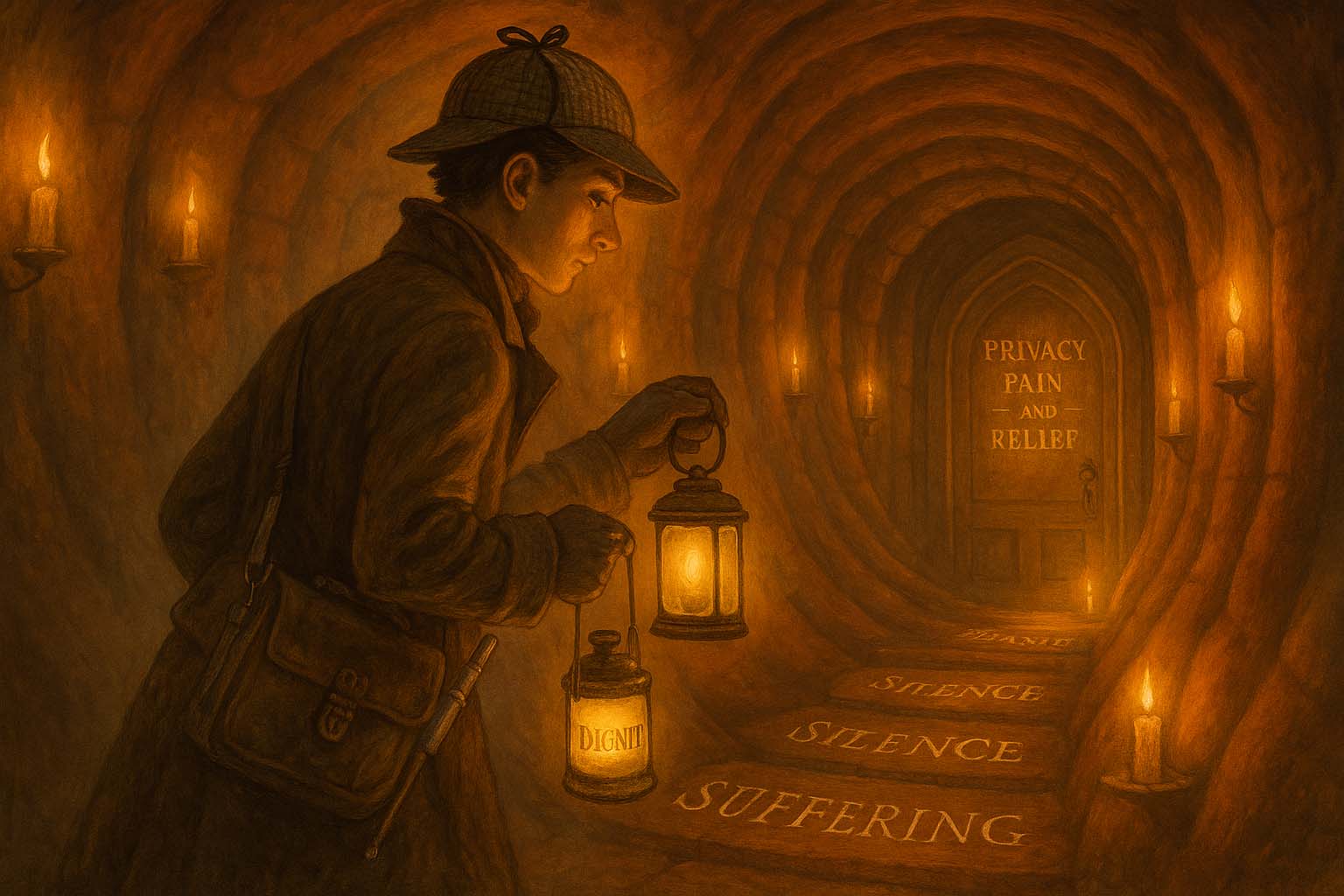
Proctology
- Posted by admin
- Categories Specialised Surgical Fields
- Date May 24, 2025
- Comments 0 comment
The End-of-the-Line Detective’s Domain - Cracking the Cases of Bleeding, Bother, and the Quiet Battles Below
1. Introduction: The Scene of the Specialty
Step into the shoes of a Proctology sleuth.
This is the final stretch of the digestive tract—the gateway of elimination, the site of discomfort too often dismissed. Proctologists investigate rectal bleeding, anal pain, itching, incontinence, and the fear-laden questions patients struggle to say aloud. Their work is humble, human, and honourable. Welcome to a world where a small fissure causes big distress, and where restoring confidence in the most private of functions changes everything.
2. Key Mysteries They Solve (Common Conditions)
These detectives specialise in solving cases involving:
- Haemorrhoids – internal, external, thrombosed or prolapsed.
- Anal Fissures – painful tears that disrupt comfort and confidence.
- Fistulas and Abscesses – hidden tunnels and infected pockets needing surgical insight.
- Incontinence, Prolapse, and Pelvic Floor Dysfunction – where structure, nerve, and function intersect.
Each case is a lesson in anatomy, honesty, and restoration—because what’s embarrassing to a patient is essential to their dignity.
3. Their Trusted Tools & Techniques
Every detective has their kit—and in Proctology, tools may include:
- Proctoscopy and Digital Rectal Exam (DRE) – essential first-line investigative techniques.
- Banding, Ligation, and Excision – minimally invasive or surgical solutions for haemorrhoids.
- Fistulotomy, Seton Placement, and Advancement Flaps – for complex fistulae and recurrent abscesses.
- Botulinum Injections, Sphincterotomy, and Biofeedback Referrals – managing spasm, incontinence, or dysfunction.
This is hands-on, grounded surgery—focused on improving lives in subtle, powerful ways.
4. The Charms of This Field: Why It Captivates the Curious
- Immediate Relief: Symptoms like bleeding, pain, or urgency can often be resolved quickly.
- Patient Gratitude: Helping someone sit, sleep, or go to the bathroom pain-free is life-changing.
- Low-Tech, High-Touch: Many solutions require skill, not screens.
- Brave Conversations: You’ll learn to talk plainly, listen deeply, and normalise what others avoid.
This is where humility, humour, and healing coexist—often in the same appointment.
5. Challenges: The Toughest Cases They Face
- Social Stigma – Many patients suffer for years before seeking help.
- Recurrent Disease – Fistulas, fissures, and prolapse can be stubborn and multifactorial.
- Chronic Pain Syndromes – Sometimes, the discomfort is functional, not structural.
- Emotional Distress – Shame, fear, or past trauma often complicate care.
But the seasoned proctologist knows: your calm presence and gentle skill can be the start of someone’s healing journey.
6. Famous Cases and Hallmark Clues
- The “Classic Presentation” – Bright red blood on the toilet paper, worsened by straining: haemorrhoids.
- The “Zebra” – Severe pain during and after defecation: sentinel tag and posterior fissure.
- The “Aha Moment” – Recurrent “boils” near the anus: actually a chronic fistula in ano.
7. Your Training Trail: How to Join the Investigation
To become a Proctology detective:
- Start with colorectal or general surgery, developing confidence in pelvic and anorectal anatomy.
- Learn to manage outpatient procedures, interpret subtle symptoms, and guide patients through sensitive care.
- Train in continence management, sphincter-sparing techniques, and pelvic floor rehabilitation.
- Cultivate empathy and efficiency—most patients fear this visit more than they need to.
Whether treating a high anal fistula or gently explaining that a fearsome symptom is benign, you provide the relief that allows people to live, work, and rest without fear.
8. Final Words: The Signature of the Proctology Detective
Proctology detectives work in the quiet corners of medicine where dignity is often hiding.
They see what others avoid, hear what others won’t, and solve problems that seem small—until they aren’t.
They restore comfort, protect continence, and remind people that every part of the body deserves care.
So if you’re drawn to grounded work with real impact, where expertise meets humanity—
then this is your seat of surgical service.



